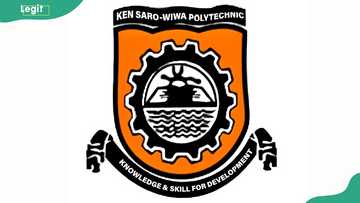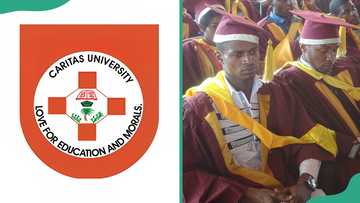Ronik Polytechnic courses, admission requirements and application
Ronik Polytechnic courses are available at National Diploma (ND) and Higher National Diploma (HND) levels, alongside chartered and professional certifications. The Lagos-based institution offers programs in engineering, technology, accounting, and business management, empowering students with skills for innovation and leadership.
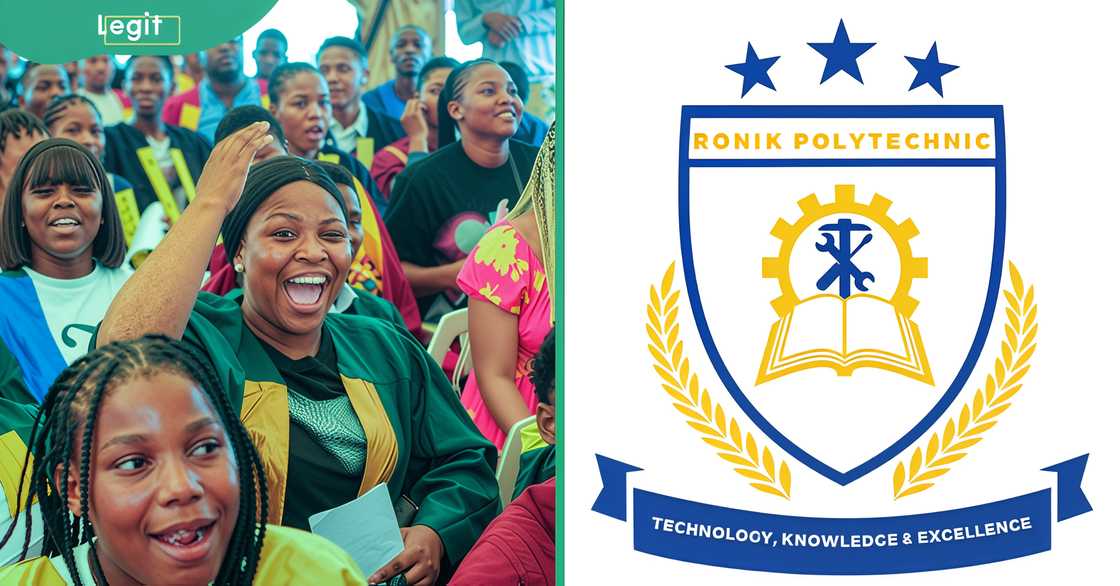
Source: Facebook
TABLE OF CONTENTS
- Key takeaways
- Full list of Ronik Polytechnic courses
- Admission requirements for ND programs
- Admission requirements for HND programs
- Ronik Polytechnic's admission process
- What is Ronik Polytechnic's cut-off mark?
- Is Ronik Polytechnic accredited?
- Is Ronik Polytechnic a private school?
- Where is Ronik Polytechnic located?
Key takeaways
- Ronik Polytechnic offers technical and vocational training in National Diploma (ND) and Higher National Diploma (HND).
- It also provides chartered & professional certification (ICAN, ATS) programs.
- For admission, prospective candidates can contact the school directly by visiting the school's main campus or calling the number +234 803 439 0536.
- Admission can also be done by filling out the application form on its website.
Full list of Ronik Polytechnic courses
In 2003, the polytechnic was commissioned by the National Board for Technical Education (NBTE) to offer additional courses in accountancy, computer science, business administration, and management.
This list of courses increased in June 2008 as the school was accredited to provide electronic engineering courses. By October 2008, the university's course list had expanded, providing courses in five schools.

Source: Facebook
These courses are attained as chartered certificates, short professional courses, National Diploma (ND), and Higher National Diploma (HND) programs.
Chartered and professional certifications
Learners at Ronik Polytechnic can benefit from accredited courses by the Computer Professionals of Nigeria, the Chartered Institute of Administration, and ICAN Professional Examination Revision classes. These certification programs include;
- Accounting Technician Scheme (ATS)
- Certificate in Desktop Publishing
- Diploma in Desktop Publishing
National and Higher National Diploma courses
Ronik Polytechnic courses are full-time academic programs offered in four schools. These are the Schools of Applied Sciences, Engineering and Technology, Business Administration and Management Studies, and Computing and Technology. Have a look at the available diploma courses for each school.
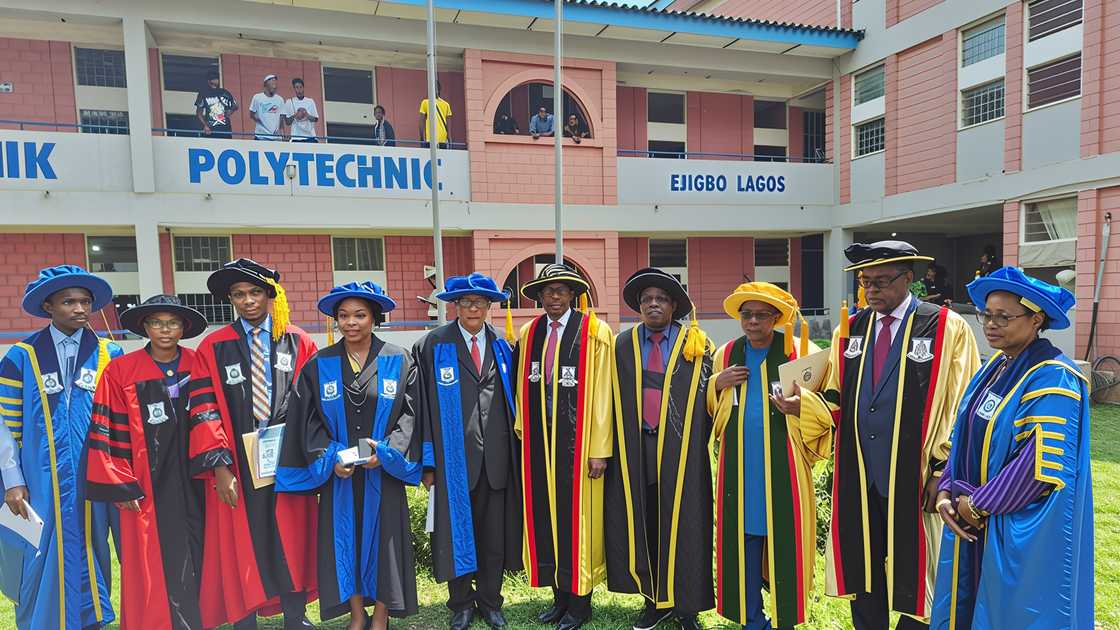
Source: Facebook
School of Applied Sciences
In the School of Applied Sciences, candidates are offered one National Diploma program in Statistics. Entry into the program requires UTME candidates to have 5 O-Level credits and 4 credit passes for Direct Entry students in TCII or NTC.
School of Business Administration and Management Studies
By design, Ronik Polytechnic's programs in Business Administration and Accountancy are aimed at core principles in banking, insurance, marketing, public administration, cooperative services, purchasing, and supply. Below are foundation courses to prepare you for careers in finance, business, and teaching.
- ND. Taxation
- ND. Marketing
- ND. Fashion Design and Clothing Technology
- ND/HND. Business Administration
- ND/HND. Accountancy
School of Computing and Technology
The polytechnic trains qualified candidates in these aspects, as well as exposing them to the Students Industrial Work Experience Scheme (SIWES). The following courses are offered in this diploma program;
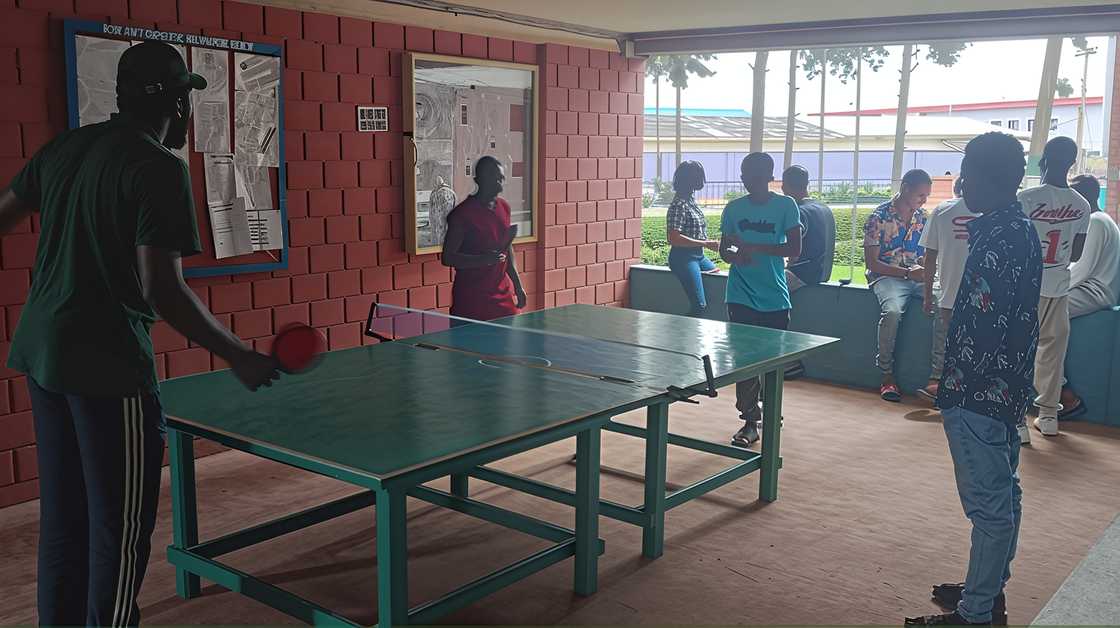
Source: Facebook
ND Computer Science with options in;
- Networking
- Software Development
- Artificial Intelligence
- Cybersecurity
- ND. Computer Engineering Technology
HND Computer Science with options in;
- Networking
- Software Development
- Artificial Intelligence
- Cybersecurity
School of Engineering and Technology
In addition to receiving approvals from the Federal Government of Nigeria and the NBTE, candidates in this program are recognised by the National Association of Polytechnic Engineering Students (NAPES). Have a look at the available courses in technological engineering at the polytechnic.
- ND. Electrical/Electronic Engineering Technology; Telecommunications Option
- HND. Electrical/Electronic Technology; Electronics Option
- HND. Electrical/Electronic Technology; Telecommunications Option
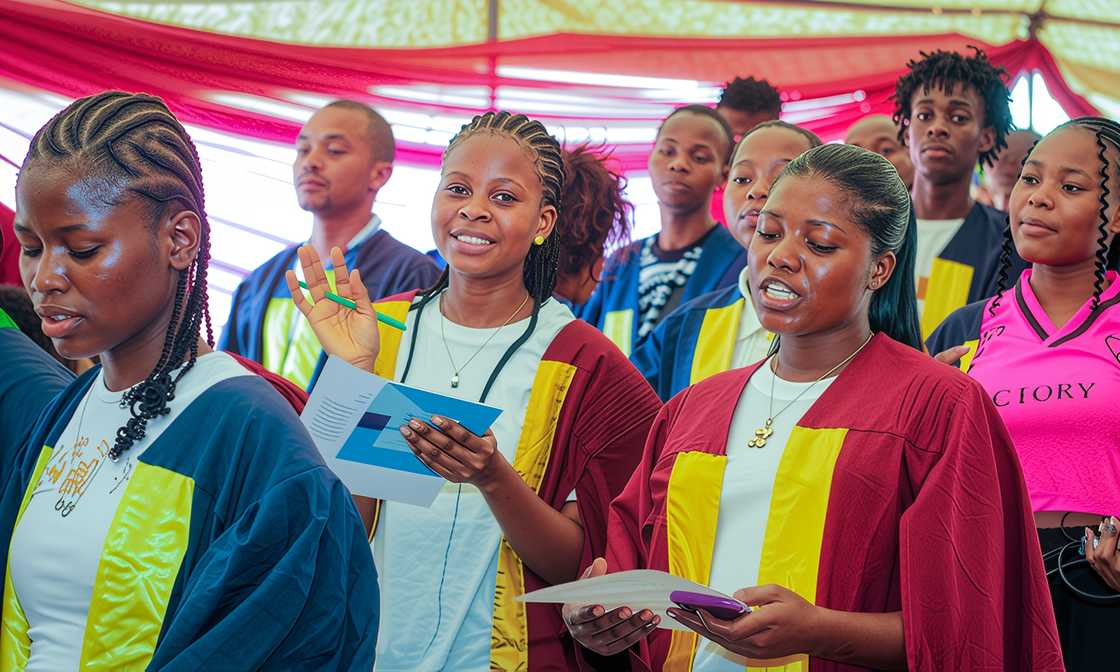
Source: Facebook
Admission requirements for ND programs
The National Diploma programs are open to UTME and Direct Entry candidates. To gain admission to any ND program, you are required to have at least five relevant credits in your O-Level results, with a minimum cut-off of 150 points. As a prospective candidate, here are the subject combinations for each course;
Course | Subject combinations |
Statistics | UTME: English, Economics, Mathematics, and either Government or Geography Direct Entry: English, Pre-ND (Science & Tech) with Mathematics and English |
Business Administration and Management | UTME: English, Mathematics, Economics, and either Government or Geography |
Taxation | UTME: English, Mathematics, Accountancy, and either Government or Economics |
Accountancy | UTME: English, Mathematics, Accountancy, and either Government or Economics |
Marketing | UTME: English, Mathematics, Economics, and either Accountancy, Government, or Geography |
Fashion Design and Clothing Technology | UTME: English and three from Economics, Government, History, or Geography |
Computer Engineering | UTME: English, Mathematics, and two from Physics, Chemistry, Economics, or Geography |
Computer Science | UTME: English, Mathematics, and two from Physics, Chemistry, Economics, and Geography Direct Entry: English, Mathematics, Physics, and two related subjects. |
Electrical/Electronics Technology | UTME: English, Mathematics, and two from Physics, Chemistry, Economics, or Geography |
Admission requirements for HND programs
Entry requirements for admission to the polytechnic's Higher National Diploma are dependent on the specific program you are applying to. Each Direct Entry candidate must have achieved 5 credits in specific subjects.
In addition to completing at least one year of relevant work experience, all prospective HND candidates must have completed their National Diplomas. These are the required qualifications for HND candidates;
Courses | Requirements |
Computer Science | ND in Computer Science NID in Software Engineering or Networking and Security |
Accountancy | ND in Accountancy |
Business Administration & Management | ND in Business Administration and Management |
Electrical/Electronics (Telecommunications Option) | ND Electrical/Electronics NID in Telecommunication Engineering |
Here is a summary of the admission requirements for the ND and HND programs.
- A certified true copy of your WAEC/NECO/NABTEB/O'Level results
- A photocopy of your birth certificate
- A copy of your secondary school testimonial
- A medical certificate of fitness
- Six passport photographs
- A copy of the JAMB admission letter
- A letter of recommendation
- A scratch card for verification
- ND results for HND candidates
- A copy of the ND transcript for HND candidates
Ronik Polytechnic's admission process
There are three ways to apply for admission at Ronik Polytechnic, which include contacting the school. Alternatively, visit the school's main campus in Ejigbo, Lagos, Nigeria, for admission details.
You can also apply for admission through the Ronik Polytechnic admission portal. Follow the steps below to find and submit the application form;
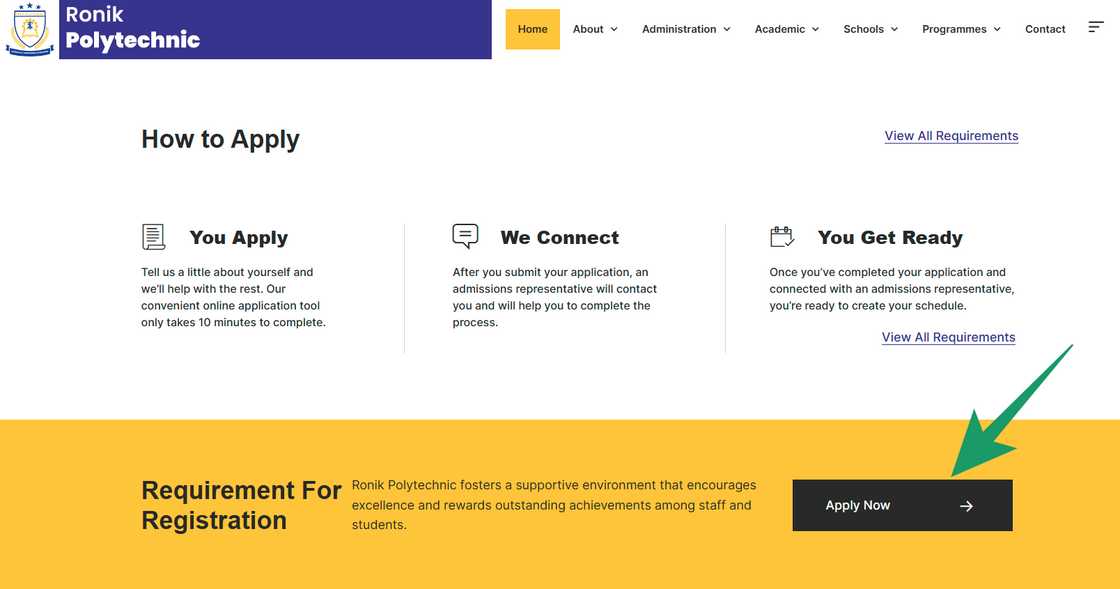
Source: Original
- Scroll to the bottom of the website's home page.
- Click on the 'Apply Now' button on a yellow ribbon labelled 'Requirement For Registration.'
- You will be redirected to an admission requirements page.
- Once you have confirmed all documents needed, scroll to the bottom of the page and tap the 'Application Form' button.
- Fill in all required applicant details and enter your education records and achievements.
- Complete the declaration section and submit the application form.
What is Ronik Polytechnic's cut-off mark?
JAMB-approved minimum cut-off marks for polytechnics are 100 points. However, according to the school's official website, National Diploma (ND) candidates must have achieved a minimum cut-off score of 150 points.
Is Ronik Polytechnic accredited?
The Federal Ministry of Education, through the National Board for Technical Education (NBTE), publicly recognises diploma courses provided at the polytechnic. Ronik Polytechnic courses are also listed in the JAMB Integrated Brochure.
Is Ronik Polytechnic a private school?
Ronik Polytechnic is a private polytechnic. According to The Guardian, it is owned by the Ronik Academic Development Foundation, owners of Ronik International Primary School and Ronik Comprehensive Secondary School.
Where is Ronik Polytechnic located?
Ronik Polytechnic is located in Ejigbo, Lagos. Here is how to get in touch with the school;
- Location: 23-25, Ailegun Road, Off Ejigbo/Egbe Road, Ejigbo. Lagos, Nigeria
- Website: ronikpolytechnic.edu.ng
- Phone number: +234 808 315 4006, +234 803 439 0536
- Email: info@ronikpolytechnic.edu.ng
- Facebook: Ronik Polytechnic
Ronik Polytechnic courses are geared towards providing technical and vocational excellence in artistic and scientific fields. From National Diplomas to Higher National Diplomas and short courses, the school caters to all students with flexible requirements.
Legit.ng has recently published an article listing the best polytechnics in Nigeria. Polytechnics offer technical and vocational training in various fields, with the best of them standing out with their instructional and practical facilities.
In addition to physical resources, the most sought-after polytechnics in Nigeria provide excellence in performance and social impact. Read on to discover polytechnics that offer specialised technical and vocational education.
Proofreading by Kola Muhammed, copy editor at Legit.ng.
Source: Legit.ng

